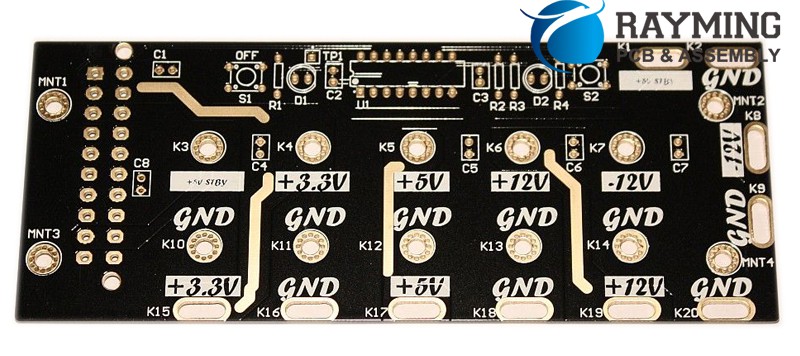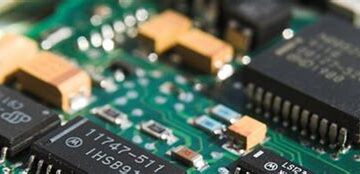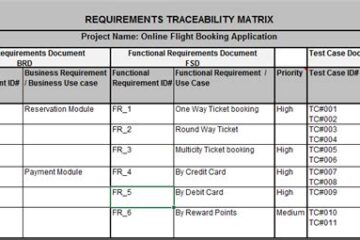Printed circuit boards (PCBs) are essential components of most electronic devices. Choosing the right PCB manufacturer is crucial for getting high-quality boards delivered on time and within budget. This article discusses the top PCB manufacturers based on factors like capabilities, quality, lead times, pricing, and customer service.
Overview of PCB Manufacturing
A PCB mechanically supports and electrically connects components using conductive tracks, pads and other features etched from copper sheets laminated onto a non-conductive substrate. PCBs can have single, double or multi-layer circuitry. Complex PCBs may contain thousands of connections and components.
Key stages in PCB fabrication include:
- Design – Creating schematics and layouts using CAD software.
- Prototyping – Producing small test runs to verify the PCB design.
- Fabrication – Using processes like lithography, etching, lamination and drilling to manufacture production PCBs.
- Assembly – Soldering and assembling components onto the PCB.
- Testing – Checking for manufacturing defects and verifying functionality.
Choosing the right PCB partner involves evaluating their design rules, manufacturing capabilities, quality control, volumes produced, lead times and costs.
Top 8 PCB Manufacturers
Here are the top 8 PCB manufacturers that provide exceptional service in 2022:
1. Advanced Circuits
Advanced Circuits is the largest PCB manufacturer in the USA, producing over 30,000 square feet of PCBs daily. They offer hobbyist to mid-volume production runs with fast turnaround times.
Capabilities:
- Layer counts: 1-16 layers
- Minimum track/space: 8/8mil (0.2mm)
- Minimum hole size: 0.2mm
- Solder mask and silkscreen colors
- Lead-free fabrication
- Controlled impedance
- HDI technology
- Free DFM included
Volume Production: Medium runs up to 5000 boards. Not ideal for very large volumes.
Lead Times: 24-48 hours for standard PCBs. 4-5 days for complex multilayer boards.
Pricing: Affordable prices, especially for prototype and low volume boards. Instant online quoting.
Quality: Excellent solder masks, silkscreens and gold plating. Very low defect rates.
Customer Service: Helpful sales staff. Superb customer support and responsiveness.
2. PCBWay
PCBWay is a leading PCB prototype manufacturer based in China with over 500,000 customers worldwide. They offer affordable, high-quality PCB batches within quick turnaround times.
Capabilities:
- Layer counts: 1-12 layers
- Minimum track/space: 4/4mil (0.1mm)
- Minimum hole size: 0.15mm
- Solder mask and silkscreen colors
- Lead-free fabrication
- HAL, ENIG and immersion gold plating
- Controlled impedance
- HDI technology
- Free DFM check
Volume Production: Ideal for prototypes and small to medium batches up to 1000 boards.
Lead Times: 24 hours for simple PCBs. 3-7 days for standard multilayer boards.
Pricing: Low minimum order quantities. Very affordable for prototyping and medium batches.
Quality: Excellent solder mask and silkscreen quality. Precise standard tolerances.
Customer Service: Fast and helpful online support. Excellent communication and order tracking.
3. JLCPCB
JLCPCB is one of the biggest PCB manufacturers in China, producing over 200,000+ square meters of PCBs daily. They are highly renowned for cheap PCB prototyping and fabrication.
Capabilities:
- Layer counts: 1-12 layers
- Minimum track/space: 4/4mil (0.1mm)
- Minimum hole size: 0.15mm
- Solder mask and silkscreen colors
- Lead-free fabrication
- Gold plating and ENIG
- Controlled impedance
- HDI technology
- Free DFM check
Volume Production: Excellent for PCB prototyping. Ideal for small to medium volumes up to 1000 boards.
Lead Times: 24-48 hours for simple PCBs. 3-7 days for standard multilayer boards.
Pricing: Extremely affordable pricing with low minimum order quantities. Great value.
Quality: Very good solder mask and legend print quality. Reliable standards.
Customer Service: Quick online support and order tracking. Decent responsiveness.

4. SEEED Studio
SEEED Studio is a prototyping-focused PCB company catering mainly to makers & hobbyists. They offer limited fabrication for customized open-hardware PCBs.
Capabilities:
- Layer counts: 1-6 layers
- Minimum track/space: 6/6mil (0.15mm)
- Minimum hole size: 0.3mm
- Solder mask and silkscreen colors
- Lead-free fabrication
- Gold plating
- Controlled impedance
- HDI technology
- Free DFM check
Volume Production: Small targeted batches ideal for prototyping. Not for mass production.
Lead Times: 15-21 days standard. 7-15 days for expedited build.
Pricing: Affordable for customized prototyping in small batches.
Quality: Great quality for prototyping needs. Small tolerances.
Customer Service: Support can be slow. Order tracking and communication needs improvement.
5. ALLPCB
ALLPCB is an established PCB & PCBA manufacturer based in China. They offer cost-effective professional fabrication and assembly services with good quality.
Capabilities:
- Layer counts: 1-16 layers
- Minimum track/space: 4/4mil (0.1mm)
- Minimum hole size: 0.15mm
- Solder mask and legend printing options
- Lead-free fabrication
- Gold plating and immersion tin plating
- Controlled impedance
- Multilayer HDI capabilities
- Free DFM check
Volume Production: Ideal for medium to large production runs.
Lead Times: 24 hours for simple PCBs. Around 15 days for complex multilayer boards.
Pricing: Cost-effective pricing with low minimum orders. Value for high-volume production.
Quality: Reliable product quality. Good solder masks and legend printing.
Customer Service: Decent customer service and order tracking. Room for improvement with communications.
6. PCBCart
PCBCart is a fab & assembly company that fulfills small to large batch PCB production. They have over 500 employees and can produce 200,000 PCBs per day.
Capabilities:
- Layer counts: 1-16 layers
- Minimum track/space: 4/4 mil (0.1mm)
- Minimum hole size: 0.2mm
- Solder mask and legend printing
- Lead-free fabrication
- Immersion gold plating
- Controlled impedance
- HDI technology
- Free DFM check
Volume Production: Caters well to medium & large production runs.
Lead Times: 24 hours for simple PCBs. 15 days for complex boards.
Pricing: Affordable for medium to large production batches.
Quality: Great solder mask and legend print quality. Reliable standards.
Customer Service: Good customer support. Order tracking can be improved.
7. FastPCB
FastPCB is a quick-turn PCB shop with over 500 employees, fulfilling small-batch to mid-volume production. They can manufacture simple PCBs within 24 hours.
Capabilities:
- Layer counts: 1-8 layers
- Minimum track/space: 6/6mil (0.15mm)
- Minimum hole size: 0.2mm
- Solder mask and silkscreen color options
- Lead-free fabrication
- ENIG and immersion gold plating
- Controlled impedance
- Limited HDI technology
- Free DFM check
Volume Production: Ideal for prototyping and small to mid-size batches only.
Lead Times: 24 hours for simple PCBs. 15 days max for standard multilayer boards.
Pricing: Affordable for fast prototyping and small production runs.
Quality: Provides decent board quality with good tolerances.
Customer Service: Quick support but communication can be limited.
8. EuroCircuits
EuroCircuits is a European PCB manufacturer that provides small to medium sized circuit board fabrication and assembly services.
Capabilities:
- Layer counts: 1-16 layers
- Minimum track/space: 6/6mil (0.15mm)
- Minimum hole size: 0.2mm
- Solder mask and legend printing options
- Lead-free fabrication
- Gold, immersion silver and tin plating
- Controlled impedance
- HDI technology
- Free DFM check
Volume Production: Caters well to small and medium sized production runs.
Lead Times: 15 days for standard multilayer PCBs.
Pricing: Affordably priced for prototypes and low to medium batches.
Quality: Great product quality and precision manufacturing.
Customer Service: Helpful sales and engineering support.
How to Select a PCB Manufacturer
Follow these tips when selecting a PCB manufacturing partner:
- Define requirements – Consider complexity, layer counts, size, quantities needed, materials etc.
- Get quotes – Get quotes from multiple manufacturers. Compare capabilities, quality, lead times, pricing.
- Check certifications – Choose ISO 9001 and IATF 16949 certified manufacturers for strict quality standards.
- Evaluate production – Ask about volume capabilities, manufacturing facilities and equipment.
- Validate capabilities – Confirm they can meet your PCB requirements reliably.
- Review previous works – Check examples of boards produced to assess quality and tolerances.
- Confirm deliverability – Validate they can deliver on time for your location.
- Check service – Gauge responsiveness and expertise of sales and engineering staff.
- Review customer feedback – Check testimonials and reviews on service quality.
Factors that Influence PCB Costs

Several factors impact the costs of PCB fabrication:
Board complexity – More complex PCBs with high layer counts, dense boards with small spaces, and advanced technologies like HDI increase fabrication costs.
Board size – Large PCBs often cost more due to greater material usage.
Quantity – PCB costs reduce significantly with higher order quantities due to economies of scale.
Lead times – Faster turnaround times can increase costs for expedited production setup and labor.
Materials – Base material costs, metals used for traces, plating materials and thickness impact costs.
Certifications – Fabricators with stringent quality certifications usually charge slightly higher pricing.
Location – Manufacturers based in regions with lower labor costs tend to offer cheaper production.
Quality Considerations for PCB Manufacturing
Key markers of quality PCB fabrication include:
- Precision – Good dimensional accuracy and tolerances for traces, holes, spaces etc.
- Reliability – Low failure rates over product lifetimes with thermal stress testing.
- Soldering – Excellent solder mask quality without voids or pools around pads.
- Plating – Uniform plating thickness across boards with no nodules or pitting.
- Legends – Clear prints without fuzzy edges or ink bleed.
- Finishes – Smooth laminate finishes with proper bonding and minimal burrs.
- Testing – Extensive inspection and electrical testing to validate functionality.
- Certifications – Stringent quality control following IPC standards and ISO certifications.
- Packaging – Secure packing to avoid shipping damage, with anti-ESD measures if required.
- Consistency – Repeatable quality across all production runs.
FQA
What are some key differences when ordering from a US-based PCB manufacturer versus a Chinese company?
Some key differences include:
- Lead times – US manufacturers can often deliver faster turnarounds for protoypes and urgent orders. Chinese companies usually need 2-4 weeks.
- Communication – Language and time zone barriers can hamper communication with Chinese manufacturers.
- Quality – US manufacturers may have more consistent quality, stringent controls and better tolerances.
- NPI Support – US manufacturers provide superior engineering support for new product introduction and design.
- ITAR Compliance – US companies are mandatory for defense projects with ITAR regulations.
- Travel – Visiting or auditing US fabs is easier for many customers.
- Cost – Chinese manufacturers typically have lower pricing for medium to high volume production.
- Ecosystem – US companies have access to better local supply chains.
Is it advisable to have a backup PCB manufacturer in case the primary fab house has issues?
Yes, it’s highly recommended to have a secondary manufacturer as backup. This provides supply chain flexibility to overcome unforeseen circumstances like:
- Production delays at the primary manufacturer
- Surges in demand requiring overflow capacity
- Quality issues that impact production yields and timelines
- Natural disasters affecting the main supplier’s facilities
- Bankruptcy or business closure of the primary manufacturer
Splitting orders across two manufacturers also reduces risk. The backup acts as redundancy for continuity. Large OEMs often dual-source PCB sourcing for better supply assurance.
What are the benefits of working with a full turnkey provider that handles design, fabrication, assembly and testing?
Turnkey providers offer these advantages:
- Convenience – Single point of contact for the full electronics product development cycle.
- Reduced effort – Less time spent managing multiple vendors and interfaces.
- Efficiency – Smooth collaboration between project stages for quicker timelines.
- Accountability – Single party responsible for the complete deliverable.
- Cost savings – Eliminates overhead costs of integrating disparate vendors.
However, turnkey providers can’t match specialists in focused individual services like complex IC design. For advanced electronics, a combination of specialist partners may be optimal.
What are some alternatives to traditional PCB substrate materials like FR-4?
Some emerging alternatives to standard FR-4 PCB substrates include:
- Metal core PCBs using aluminum or copper substrates for better thermal performance.
- Ceramic PCBs made of aluminum oxide or other ceramics operate at higher temperatures and frequencies.
- Flexible PCBs use polyimide substrates that can bend dynamically in products.
- PTFE PCBs fabricated using Teflon possess excellent electrical insulation properties.
- Rogers laminates provide tight impedance control and low losses at high frequencies.
- IMS PCBs use insulation metal substrates for very high thermal conductivity.
- Arlon microwave materials like AD1000 allow optimized functionality at microwave frequencies.
What are some key considerations when selecting PCB finishes?
Important factors when choosing surface finishes:
- Oxidation resistance – Prevents pad/trace corrosion over product lifetimes.
- Solderability – Ease of soldering components for PCB assembly.
- Wear resistance – Withstands abrasion, scratches and mechanical damage.
- Cost – Material and processing costs vary across finishes.
- Lead-free compatibility – Must withstand lead-free soldering temperatures.
- Gold embrittlement mitigation – Reduction of brittle gold-tin intermetallic growth.
- Environmental compatibility – RoHS compliance for hazardous substances.
Common finishes include:
- HASL – Cost-effective, offers good solderability and shelf life.
- Immersion silver – Low cost, excellent solderability, prone to tarnishing.
- ENIG – Provides good oxidation resistance and solderability.
- Immersion tin – Non-leaded, relatively low cost, can be prone to whiskering.
- OSP – Cheapest option but limited solderability and shelf life.
- Gold – Maximum oxidation resistance but very expensive.



0 Comments